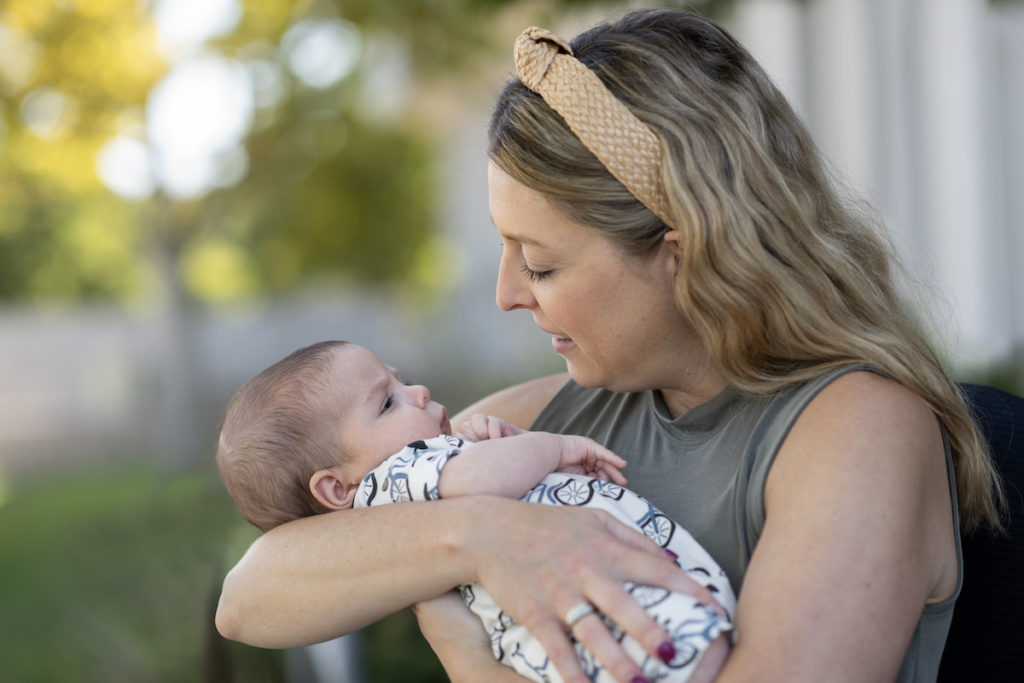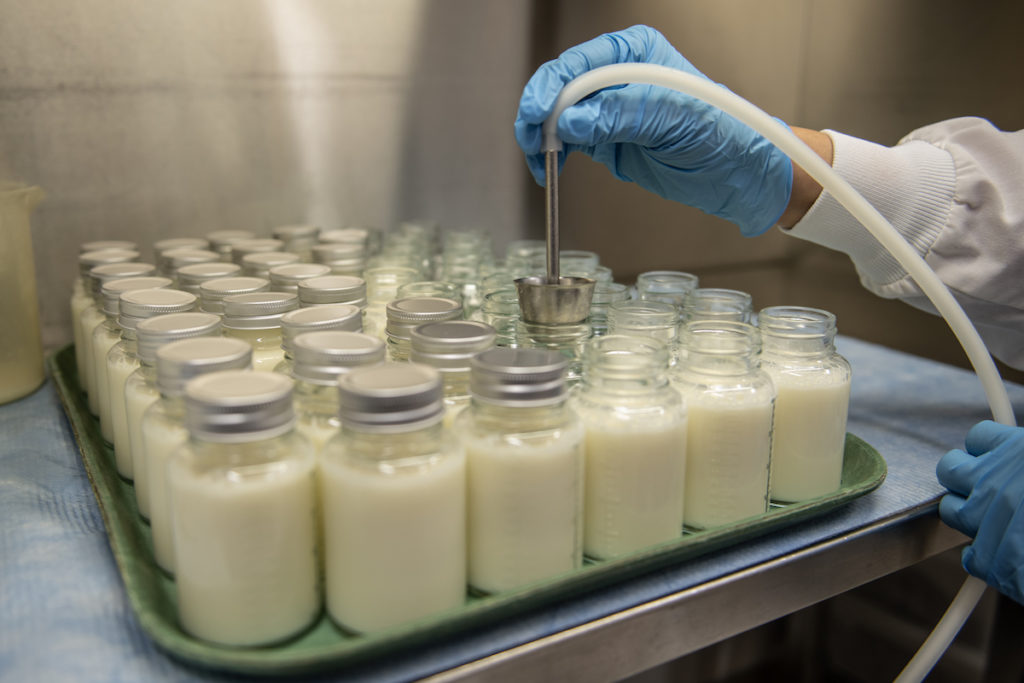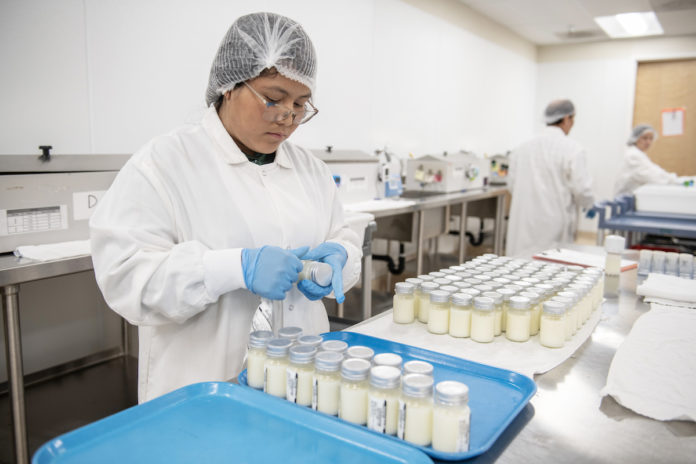After Yvette Ocegueda of Newark gave birth to her second child, she was producing more milk than her baby needed. “I don’t want to throw it away. I don’t know what I’m going to do with it,” Ocegueda recalled thinking at the time. Soon, she discovered Mothers’ Milk Bank California (MMBC), the longest continually operating milk bank in the country, according to the organization’s website.
Human milk donations are especially critical for premature or extremely low birth weight babies. With fragile digestive systems, these newborns can be at higher risk of suffering from necrotizing enterocolitis (NEC), which results in the death of intestinal tissues and “has a mortality rate as high as 50%,” according to the University of California. Premature infants who receive donor milk develop NEC at lower rates than those who are exclusively fed formula.
Even for healthy babies, human milk is now considered nutritionally optimal by medical professionals. The American Association of Pediatrics (AAP) cites “short- and long-term medical and neurodevelopmental advantages of breastfeeding” and recommends “exclusive breastfeeding for approximately six months after birth.”

Donor milk can help many infants whose mothers can’t produce milk. A video testimonial from MMBC recounts the journey of a woman whose baby was delivered with the help of a gestational surrogate. Wishing to confer some of the benefits of breastfeeding for her newborn, she searched for donated milk. “I just submitted a request online, and a perfectly-packaged, frozen container just showed up at my door,” she said.
For some families, the price of donated human milk can be prohibitive. The University of California Health Milk Bank, based in San Diego, charges $4.80 per ounce for donor milk “to offset the costs of shipping and processing.” The MMBC does not publicize prices, but also notes that the organization needs to break even on the costs of collecting, storing, processing and shipping the milk.
Last year, Governor Newsom signed a bill into law that would “establish parity for coverage of medically necessary donor milk” under Medi-Cal and allow hospitals to more easily distribute donor milk to patients. The bill, AB 3059, was heralded as a way to expand access to traditionally underserved communities that suffer higher infant mortality rates.

Milk donation is also growing more accessible for donors. “The whole process was so easy, it’s the best,” Ocegueda said. After filling out an online form, Ocegueda called a number at MMBC to provide her medical history and schedule a blood test to check for any health conditions. Now she can email or call the nonprofit any time to receive a cooler and arrange a carrier to pick up her extra milk. The charity then pasteurises, tests and re-packages the milk for delivery to hospitals or other babies.
In some ways, milk donation is a wonderful way to make a connection with a family who might be in a very different situation from one’s own. “I think the biggest thing is for moms not to compare themselves to anyone else,” Ocegueda said. “If you’re able to help, you’re helping out a lot of babies who are in the NICU, who need the breast milk and the antibodies in the milk.”




